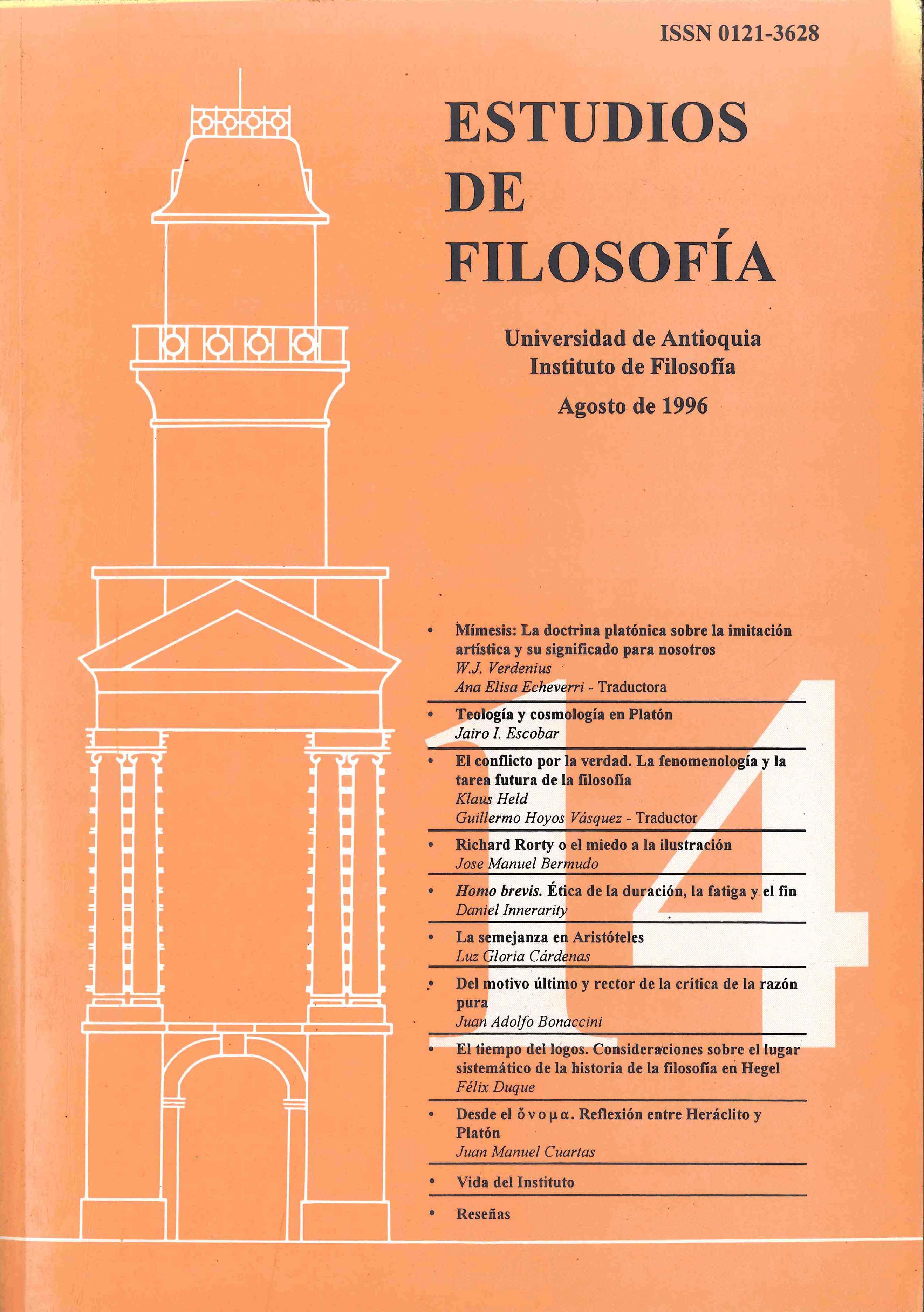The conflict for the truth. Phenomenology and the future task of philosophy
DOI:
https://doi.org/10.17533/udea.ef.338436Keywords:
Phenomenology, epoche, HusserlAbstract
The very access lo phenomenology is, according lo Edmund Husserl, his father, the epoche or suspension of statements asserting beingfrom a fact. This suspension of preconceptions has been on the base of science and philosophy from their beginning. For Stoic and Sceptic philosophers in Hellenic period, epoche was based on other un examined presuppositions according to which, given the big gap between the existence of the facts and their appearance, it must befilled by means ofa decision of the will. It was from this conception that modern voluntarism, whose political and ecological consequences are the immediate concern of humanity nowadays, arase. Befare Hellenism, Greek thought had rested on the differentiation of appearance and being, without assigning a role to the will. In the new form of epoche within phenomenology both presuppositions are suppressed. So, appearing means becoming evident within a "horizon". After subjectivism, and in order to re-open the way for philosophy, the task of phenomenology is to clarify the sense in which the world is much more than a particular horizon, and to assume the implications of this. Only then, the relation between being and appearance as well as the meaning of will regarding the place of men in the world will become clear.
Downloads
Downloads
Published
How to Cite
License
Copyright (c) 2019 Klaus Held; Guillermo Hoyos Vásquez

This work is licensed under a Creative Commons Attribution-NonCommercial-ShareAlike 4.0 International License.
Authors who publish with this journal agree to the following terms:
1. The Author retains copyright in the Work, where the term "Work" shall include all digital objects that may result in subsequent electronic publication or distribution.
2. Upon acceptance of the Work, the author shall grant to the Publisher the right of first publication of the Work.
3. The Author shall grant to the Publisher a nonexclusive perpetual right and license to publish, archive, and make accessible the Work in whole or in part in all forms of media now or hereafter known under a Creative Commons Attribution-NoCommercia-ShareAlike (CC BY-NC-SA 4.0), or its equivalent, which, for the avoidance of doubt, allows others to copy, distribute, and transmit the Work under the following conditions: (a) Attribution: Other users must attribute the Work in the manner specified by the author as indicated on the journal Web site;(b) Noncommercial: Other users (including Publisher) may not use this Work for commercial purposes;
4. The Author is able to enter into separate, additional contractual arrangements for the nonexclusive distribution of the journal's published version of the Work (e.g., post it to an institutional repository or publish it in a book), as long as there is provided in the document an acknowledgement of its initial publication in this journal;
5. Authors are permitted, and Estudios de Filosofía promotes, to post online the preprint manuscript of the Work in institutional repositories or on their Websites prior to and during the submission process, as it can lead to productive exchanges, as well as earlier and greater citation of published work (see The Effect of Open Access). Any such posting made before acceptance and publication of the Work is expected be updated upon publication to include a reference to the Estudios de Filosofía's assigned URL to the Article and its final published version in Estudios de Filosofía.















